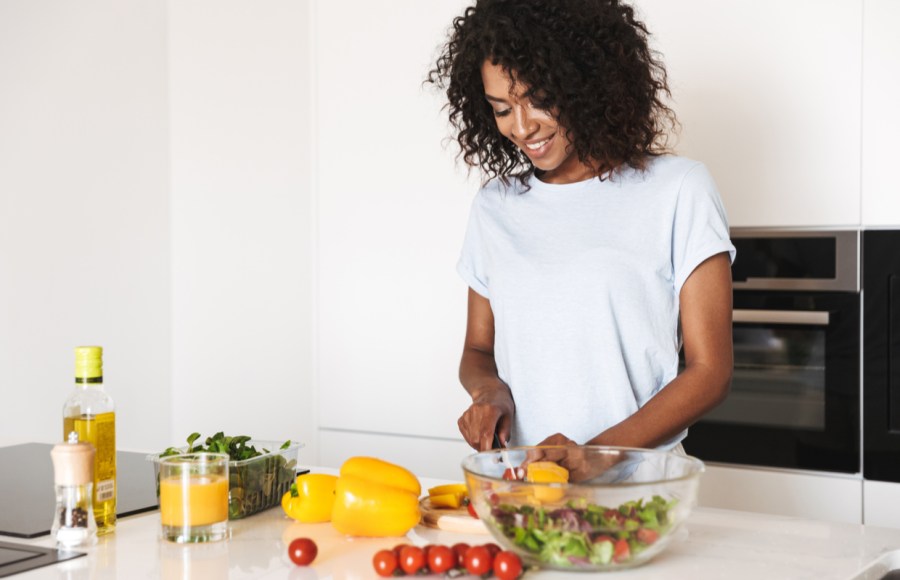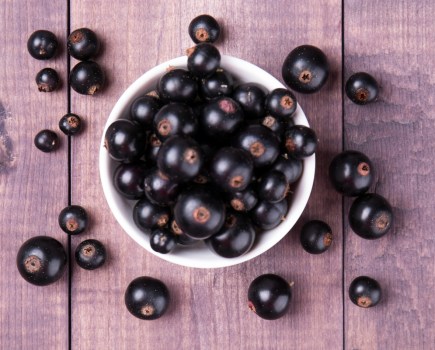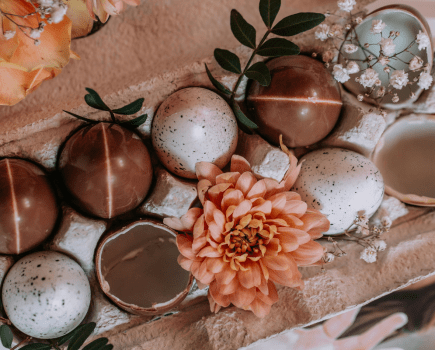What and when you eat affect how you sleep at night. Try our seven-day meal plan, complete with the best foods and recipes for better sleep…
We all know that getting enough sleep is crucial for your wellbeing and yet it’s estimated around a third of people will, at some point, have problems sleeping.
Insomnia can be triggered by a number of things including stress, anxiety, depression or grief, as well as breathing problems and pain. But if the above don’t seem relevant to you and yet you’re still having trouble falling and staying asleep, you might want to consider what you eat.
‘Most people forget that diet is also a major contributory factor in sleep,’ says nutritionist Lily Soutter. ‘There’s no point concentrating purely on lifestyle factors, such as exercise, how stressed you are, or making your bedroom a Zen haven if you’re not taking what you eat into account. You need to balance everything synergistically for optimum sleep.’
Studies show that lack of sleep can weaken your immune system over time and potentially lead to health problems, including high blood pressure, depression, low mood, poor memory, diabetes, heart disease and even cancer.
Tryptophan: the key to better sleep?
A healthy diet, with nutritious foods and recipes, is crucial not just for general good health but to ensure you’re getting all the essential nutrients that promote good sleep,’ says Lily. One key nutrient to get you sleeping well is tryptophan. ‘This is an amino acid found in protein-rich foods,’ says Lily.
‘You can’t make tryptophan in your body, so you need to get it from food. Tryptophan is converted to a
molecule called 5-HTP (55-hydroxytryptophan). Sufficient amounts are needed to then produce the mood-boosting hormone serotonin. When serotonin levels are low, this affects sleep, cognition and mood.’
Serotonin is a precursor to the sleep hormone, melatonin, produced in your pineal gland, which regulates the sleep-wake cycle. ‘Several studies have shown that increasing tryptophan raises both serotonin and melatonin levels,’ says Lily.
‘Foods that contain the most tryptophan include poultry, such as chicken and turkey, as well as shrimp, eggs, tuna, almonds, bananas, pumpkins, sunflower seeds, spinach and oats. It’s also found in milk and yoghurt.’
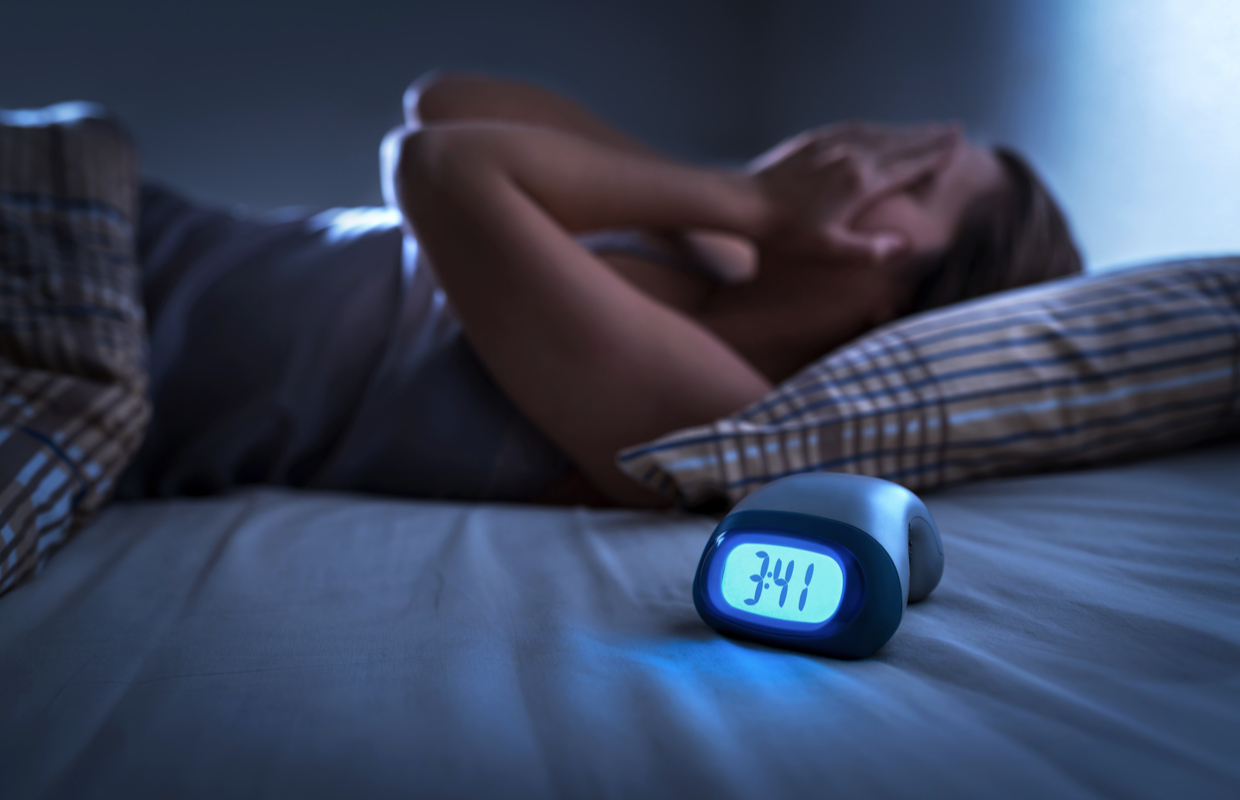
Could your blood sugar levels be keeping you awake?
Lying in bed not being able to sleep, even though you’re tired, or waking up in the night, may also be caused by low blood sugar. ‘If blood sugar levels drop during the night, your body’s stress response kicks in,’ says Lily.
‘The body then mobilises sugar from your liver and muscle cells to stabilise blood sugar levels. Nighttime dips occur for the same reasons as during the day. If you’re stressed, eat foods high in sugar, exercise too close to bedtime or drink alcohol, this causes cortisol and blood glucose levels to spike then crash.
‘Cortisol should be lowest at night or else you’ll feel hyper alert at bed and won’t be able to sleep. Eating regularly throughout the day (healthy proteins and complex carbohydrates) plus cutting down on sugar and alcohol will help keep blood sugar more stable.’
Poor sleep and vitamin D deficiency
Another thing that may affect your sleep is being deficient in vitamin D. ‘A study showed that when people who were low in vitamin D were given daily supplements for eight weeks, they saw an improvement in sleep,’ says Lily.
‘Your body makes most of the vitamin D it needs during the summer when the UVB from the sun is at its strongest. This is not possible in winter, when UVB is too low to trigger vitamin D production, especially in those with darker skin.
‘As a result, around 40 per cent of the UK population is deficient in vitamin D.’ Eating more D-rich foods and recipes may help you sleep somewhat, says Lily.
Top up your vitamin D by eating these foods…
- Oily fish (salmon, tuna, trout, mackerel, herring, pilchards)
- Milk
- Eggs
- Mushrooms (shiitake, Portobello, chestnut)
- Wholegrains
- Tofu
- Fortified foods (nut milks, yoghurt, orange juice etc)
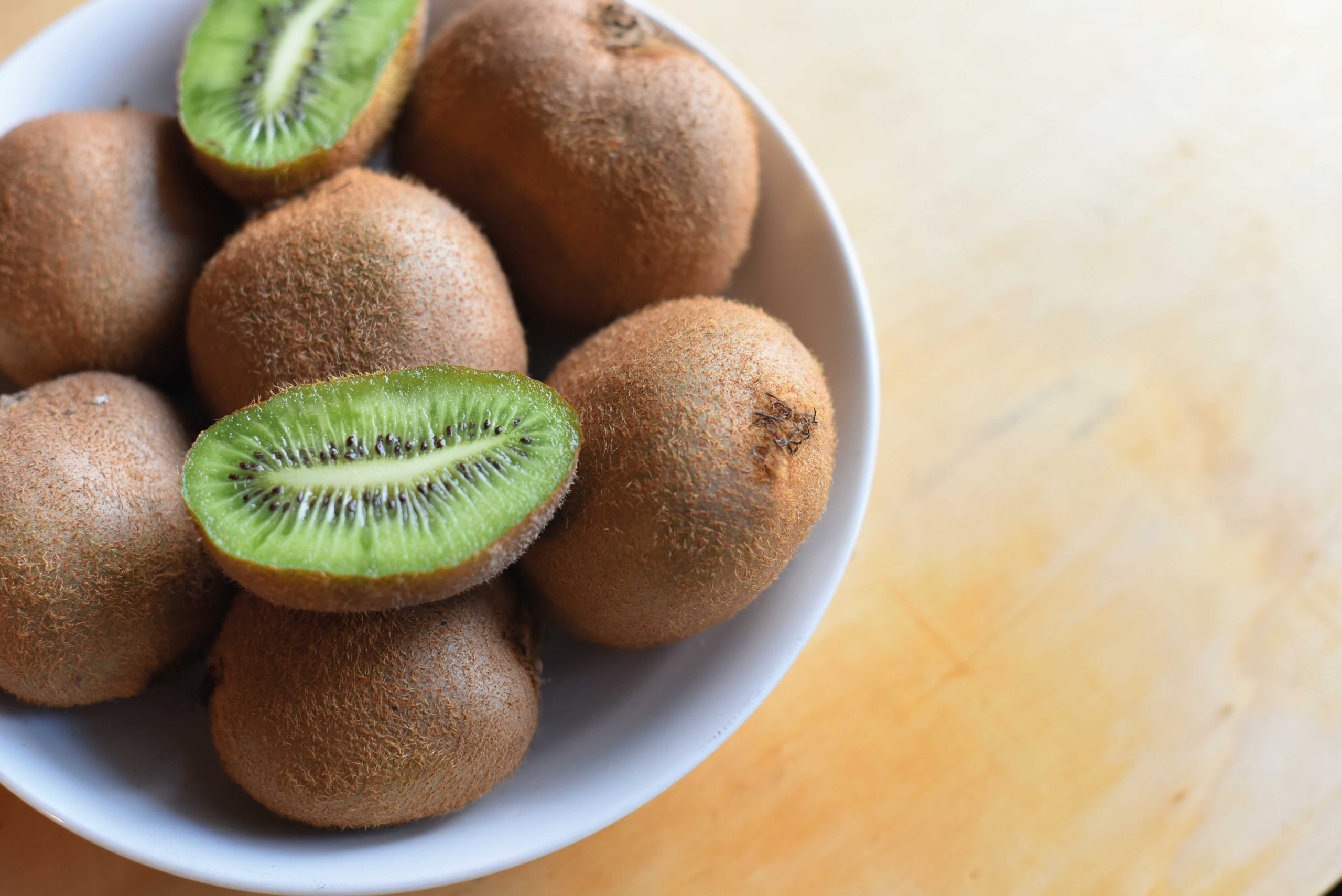
Top 3 foods for better sleep
1. Montmorency cherries
Montmorency cherries are one of the only natural food sources of melatonin, the hormone that regulates sleep. A study by Northumbria University showed that when participants drank two 30ml concentrated shots of cherry juice twice a day for a week, they slept, on average, 39 minutes longer, their sleep quality was better, and they felt less sleepy during the day.
TRY IT: Optima Healthcare Activ Juice Cherry (£15.99 for 1ltr). Try drinking a cup an hour or so before you go to bed.
2. Lettuce
Lettuce contains lactucarium that has a natural sedative and mind-calming effect. To make a sleep inducing drink, juice one organic, fresh lettuce with a banana – rich in tryptophan – and some nut milk.
3. Kiwis
Eating two kiwi fruits for a month before going to bed improved sleep and sleep quality, according to a study by the School of Nutrition and Health Science, Taipei Medical University.
The researchers weren’t sure exactly why eating kiwis was so effective, but the fruit does contain many medicinally useful compounds, including antioxidants and also folate that may be beneficial for sleep.
They also contain serotonin, needed for making melatonin. However, serotonin consumed from food does not cross the blood brain barrier (it needs tryptophan to enter the brain), so more research is needed.
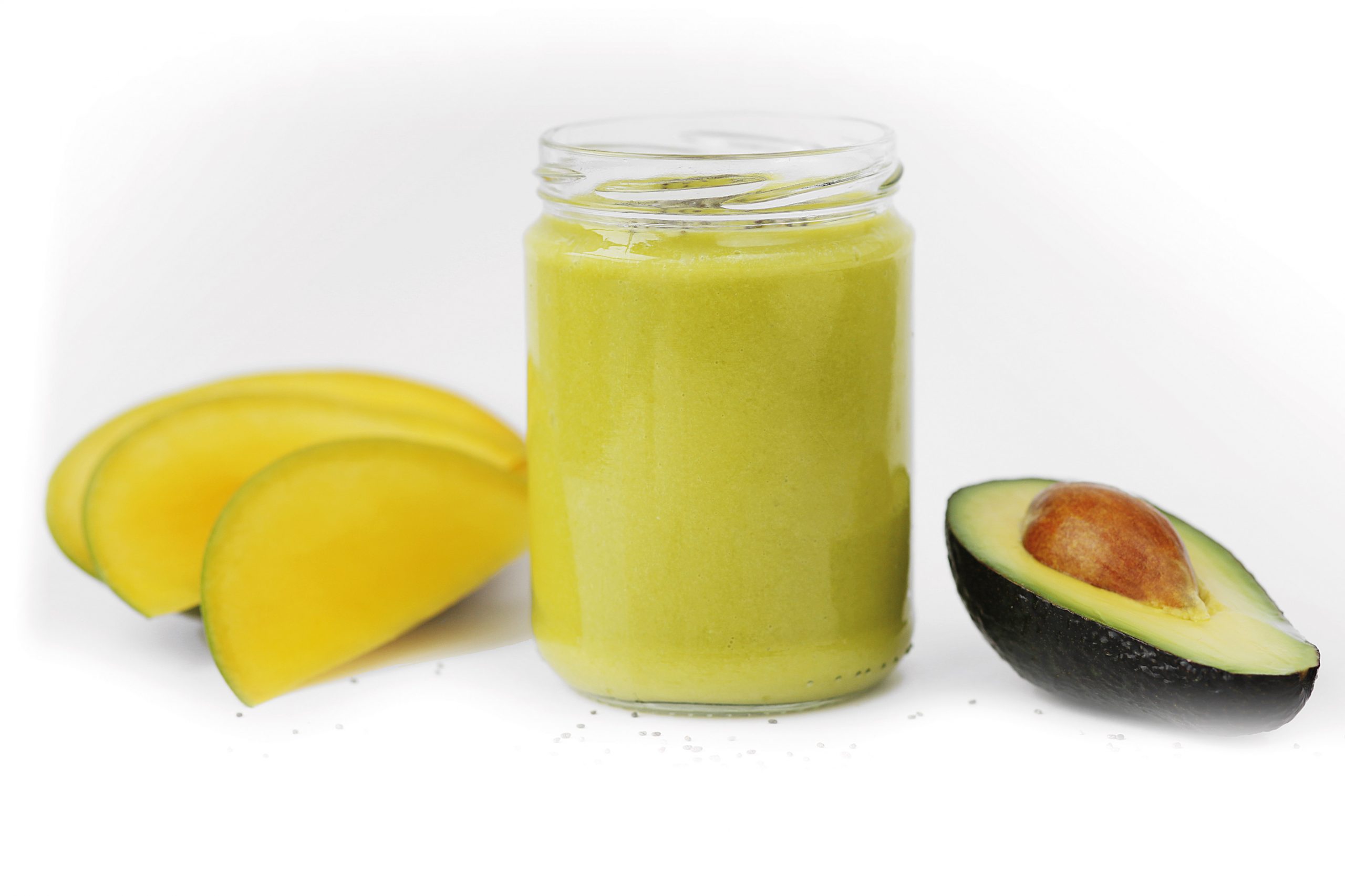
Seven-day meal plan: foods and recipes for better sleep
Nutritionist Lily Soutter’s week-long plan can help prepare your body and mind for better sleep. The recipes include foods rich in nutrients to promote good sleep, including proteins, complex carbs and healthy fats…
MONDAY
Breakfast: Blitz up ½ mango (can be frozen), ½ an avocado, 2 handfuls spinach, 300ml almond milk, 2 tbsp chia seeds and ¼ lime. Blend until smooth.
Lunch: Mix in a bowl 50g cooked quinoa, 2 handfuls of watercress, handful rocket, ¼ red onion, ½ avocado and ½ mango, all chopped.
Dinner: Cook 100g spinach, ½ head broccoli, 300ml vegetable stock and 200g cannellini beans. Add garlic, cumin and fresh lemon juice. Blitz until smooth.
TUESDAY
Breakfast: Serve 150g Greek yoghurt with 2 sliced kiwi fruit. Top with handful of pumpkin seeds.
Lunch: Fill 2 slices wholegrain bread with a mix of shredded, cooked chicken breast, ½ smashed avocado and handful chopped coriander.
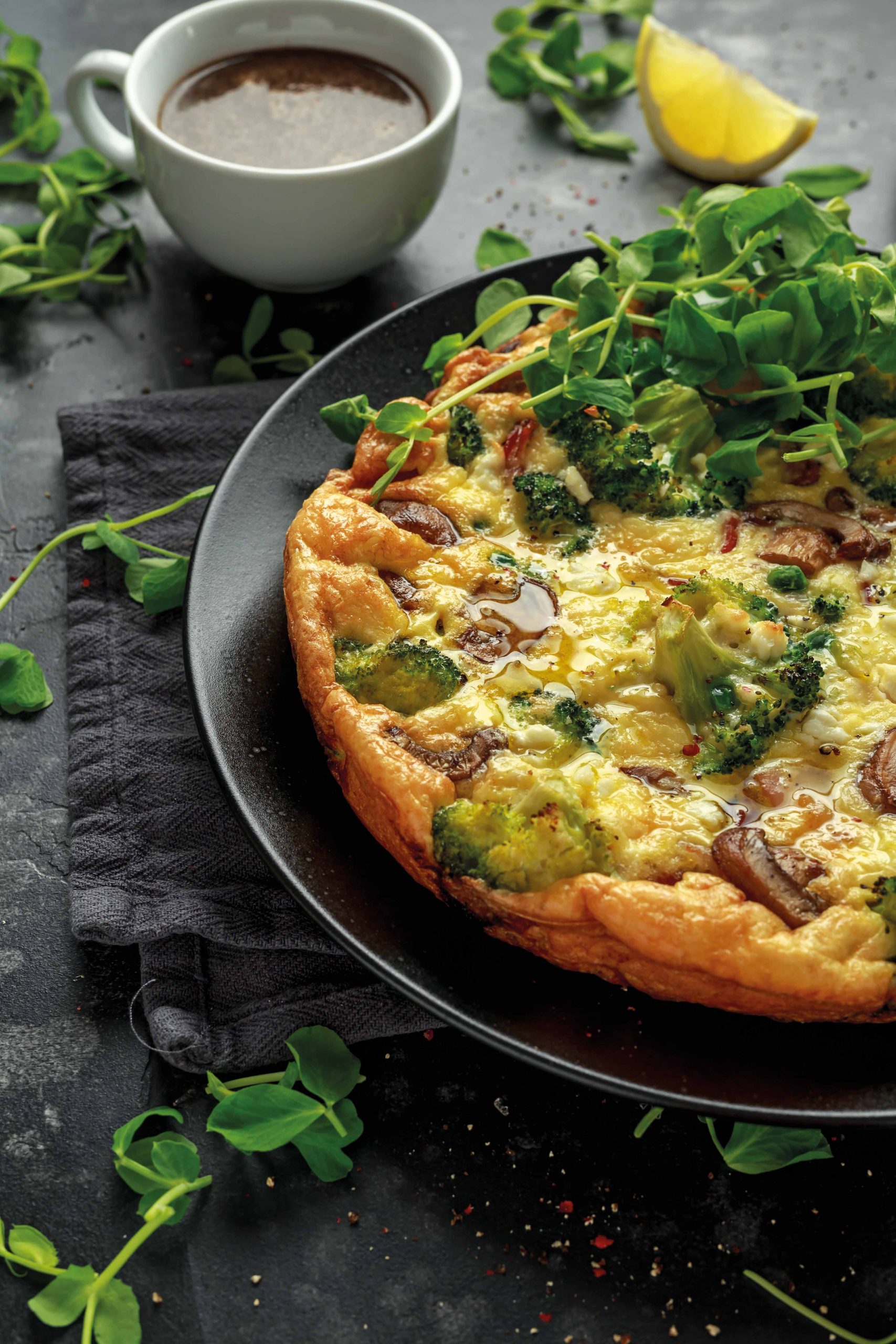
Dinner: Garlic mushroom frittata.
Serves 1
- 125g chestnut mushrooms, sliced
- 2-3 tsp olive oil
- ½ small garlic clove, crushed
- 1 handful chives, thinly sliced
- Black pepper, pinch
- 2 eggs, beaten
- 2 handfuls mixed lettuce leaves
- Sauté the mushrooms in a pan with a little bit of olive oil, until softened and browned.
- Stir in the garlic, chives and pepper. Cook for 1 min and reduce heat to low.
- Pour the eggs over the mushrooms. Cook until almost set.
- Place pan under a hot grill for 2-3 mins, until set.
- Serve with a mixed leaf salad. Add olive oil and black pepper.
WEDNESDAY
Breakfast: Cook 40g oats with 300ml milk. Top with 1 chopped pear and 1 tbsp almond butter.
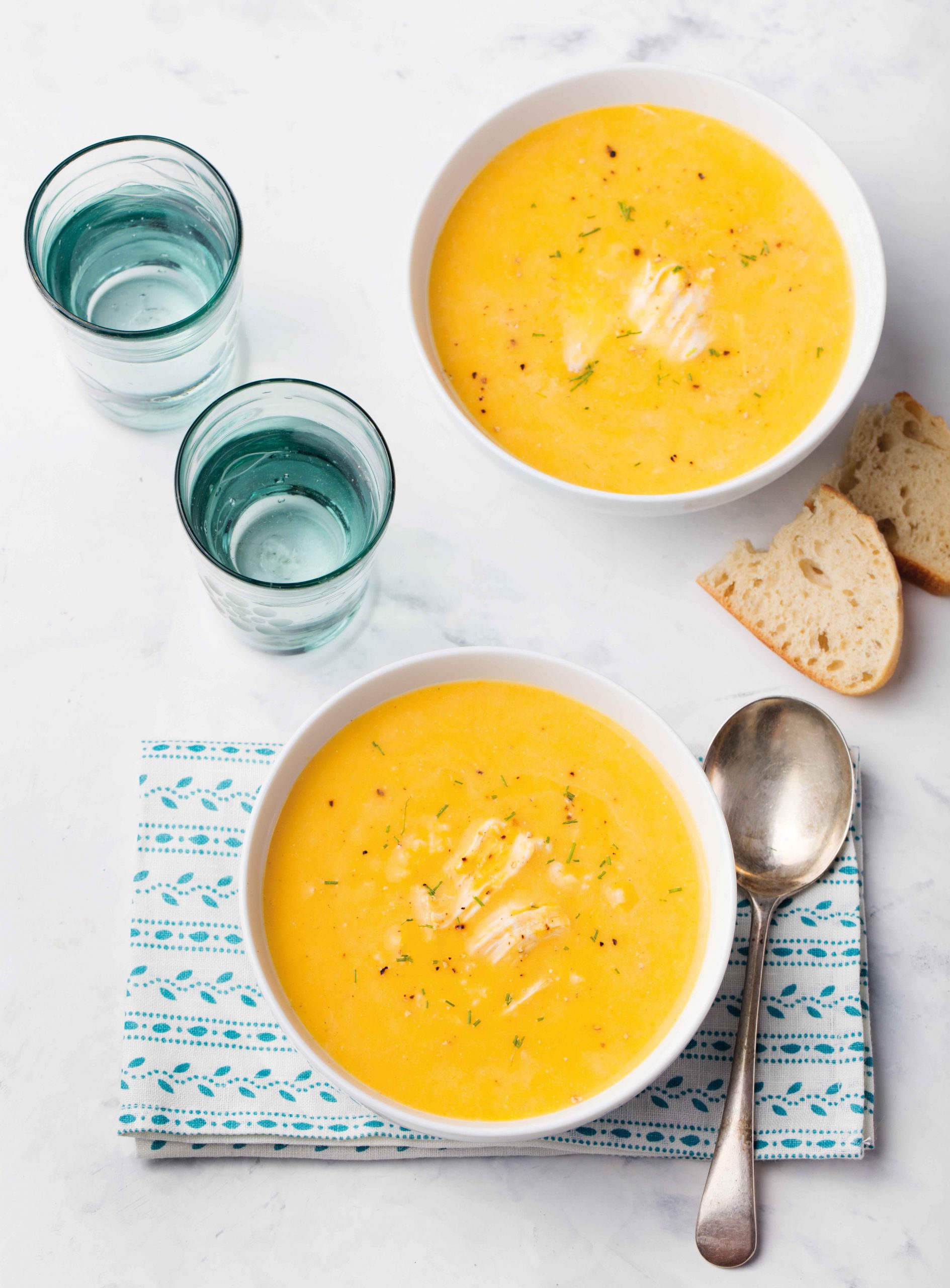
Lunch: Roasted vegetable and chicken soup
Serves 1
- 1 beetroot, small
- 1 parsnip
- 60g butternut squash
- 1 carrot, medium
- 1 onion, small
- 300ml chicken stock
- 100g chicken breast, cooked
- Cut up the vegetables into chunks and then roast drizzled with olive oil for 30 mins, or until soft, on a baking tray in a preheated oven.
- Mix with 300ml chicken stock. Add extra water if needed.
- Blend and reheat on the hob.
- Add shredded chicken breast.
Dinner: Cut the tops off 2 red peppers, scoop out seeds and cook in water until soft. Drain and stuff with 40g cooked couscous, 1 tbsp raisins, 1 tbsp walnuts. Top with feta.
THURSDAY
Breakfast: Blend 300ml milk, 2 tbsp Greek yoghurt, 150g blueberries, 1 tbsp chia seeds, ½ tsp cinnamon and 150ml Montmorency cherry juice.
Lunch: Mix ½ smashed avocado, 1 flaked, roasted salmon fillet, chilli flakes and lemon juice. Serve on 1 slice wholegrain toast.
Dinner: Grill 1 salmon fillet. Serve with roasted aubergine, courgette and sweet potatoes.
FRIDAY
Breakfast: Mix ½ cup of rolled oats, 1 tbsp chopped cashews, ½ cup orange juice, ½ tsp orange rind, 3 tbsp Greek yoghurt and ½ tsp cinnamon in a bowl and leave in fridge overnight.
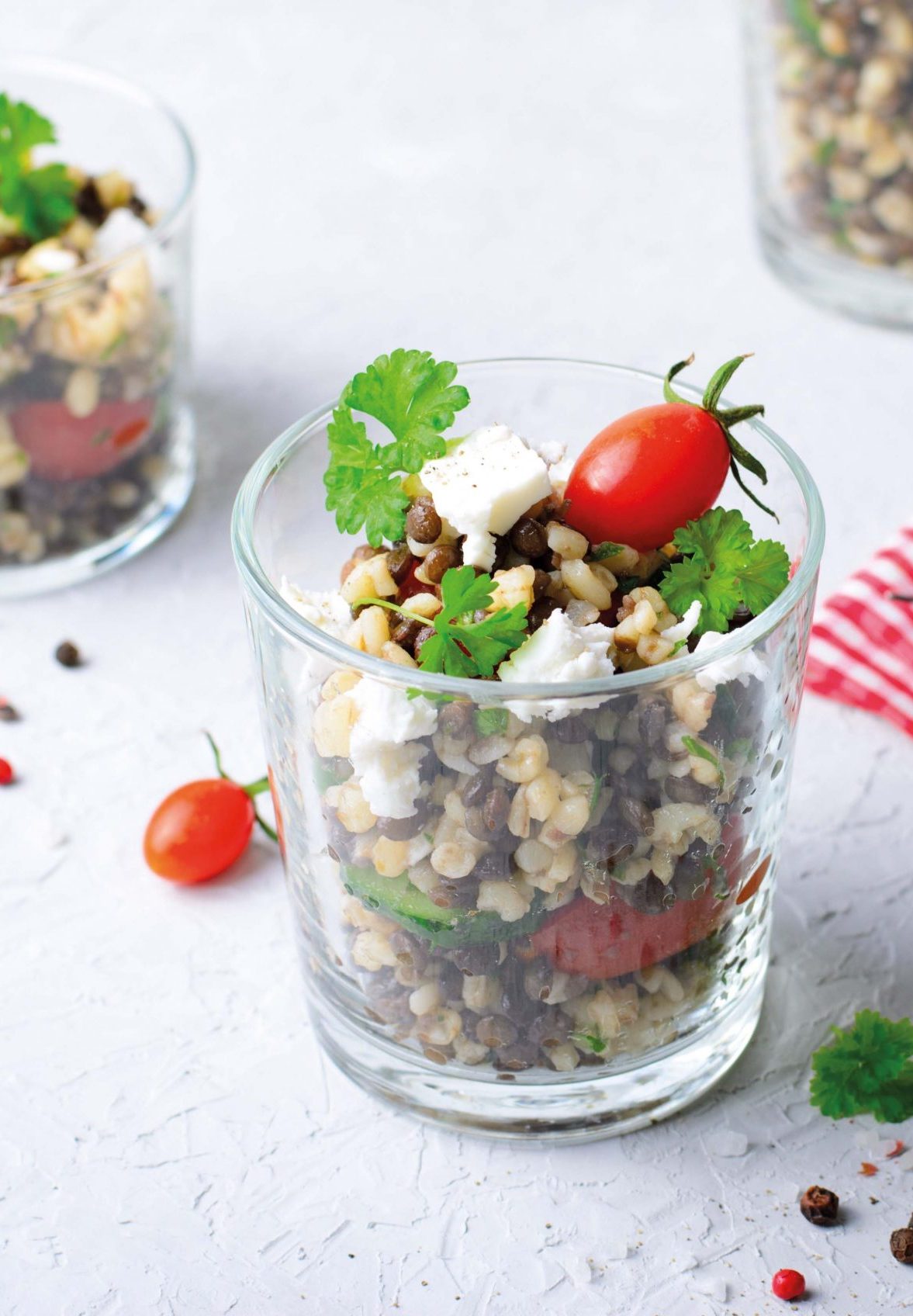
Lunch: Puy lentil, feta and mint salad
Serves 1
- 60g puy lentils, cooked
- ¼ cucumber, chopped
- 40g feta cheese
- 5 cherry tomatoes, halved
- ¼ red onion, chopped
- ½ tsp olive oil
- 1 handful of mint, fresh and chopped
- Mix together the lentils, cucumber, feta, cherry tomatoes and red onion in a bowl.
- Add olive oil and season with black pepper.
- Garnish with mint.
Dinner: Cook 1 onion, 1 tbsp grated ginger, 3 carrots and 500ml vegetable stock on the hob for 25 mins, then blend in a food processor until smooth.
SATURDAY
Breakfast: Serve 2 poached eggs with ½ smashed avocado on a slice of wholegrain toast.
Lunch: Mix 40g cooked quinoa with 6 sliced strawberries, handful baby spinach, 1 tbsp sunflower seeds, 20 hazelnuts and 30g goat’s cheese.
Dinner: Bake 1 sweet potato. Top with 1 sliced chicken breast, ½ avocado, 1 tbsp salsa and 1 tbsp natural yoghurt.
SUNDAY
Breakfast: Mix 1 large, mashed banana, 1 egg and 2 tbsp wholewheat flour. Cook in a heated frying pan and top with pomegranate seeds.
Lunch: Spiralise 1 courgette and mix with 1 tbsp pesto, sliced chicken and a handful of pomegranate seeds.
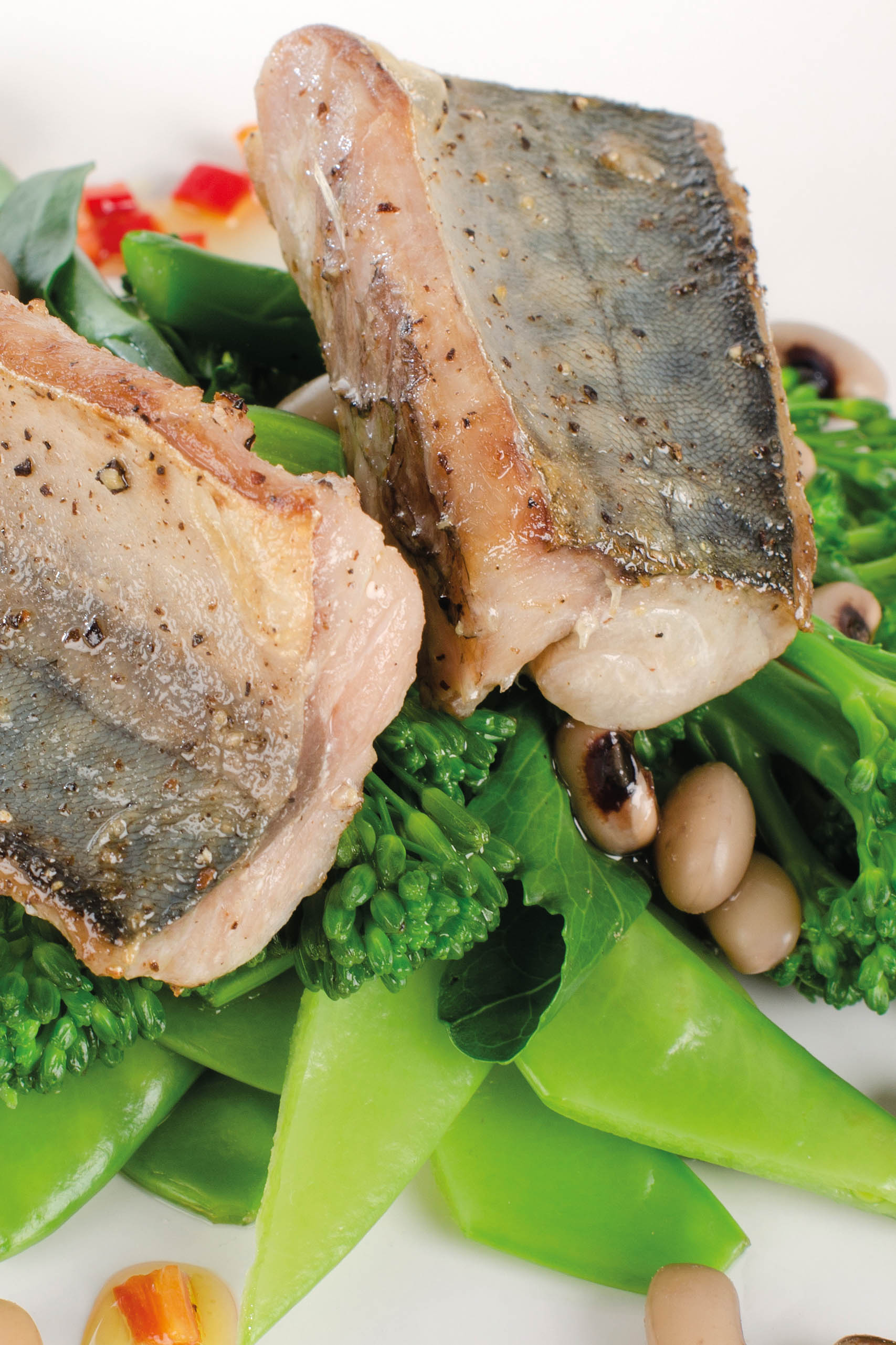
Dinner: Mackerel and greens
Serves 1
- 150g new potatoes
- 1 mackerel fillet, fresh (about 80g)
- Pinch sea salt
- 1 tsp olive oil
- 80g green beans, trimmed
- 80g tenderstem broccoli
- 1 wedge of lemon
- Cook the new potatoes until tender, drain and keep warm.
- Sprinkle mackerel fillet with sea salt and olive oil. Grill for about 5-6 mins, both sides, until cooked through.
- Cook or steam the green beans and broccoli.
- Serve the mackerel with a wedge of lemon, the potatoes and greens.

